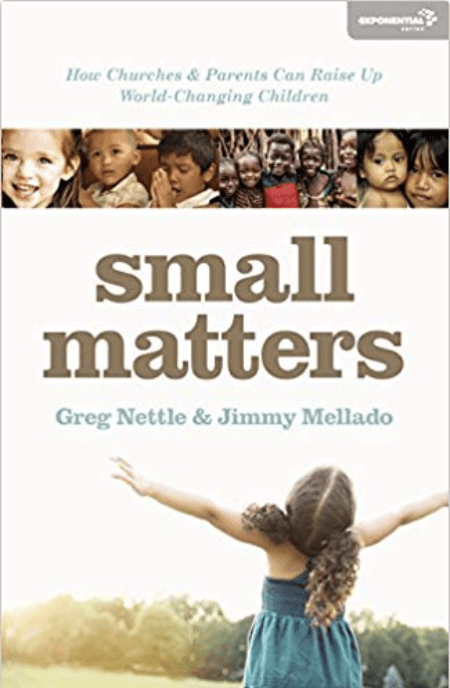
Reggie Joiner
Reggie Joiner, is founder and CEO of Orange/reThink Group, a nonprofit organization whose purpose is to influence those who influence the next generation. Orange provides resources and training for churches and organizations that create environments for parents, kids, and teenagers.
Before founding Orange in 2006, Reggie was one of the founders of North Point Community Church with Andy Stanley. During his 11 years there, Reggie was the executive director of family ministry.
Reggie has authored and co-authored several books including Think Orange, A New Kind of Leader, Seven Practices of Effective Ministry, Parenting Beyond Your Capacity, Lead Small, Playing for Keeps, When Relationships Matter, and It’s Just a Phase So Don’t Miss It.
Reggie and his wife, Debbie, live in North Georgia and have four adult children and four grandchildren.
For more information about Reggie Joiner, visit ReggieJoiner.com or follow him on Instagram @ReggieJoiner.

Kristen Ivy
Kristen Ivy is executive director of messaging at Orange. She and her husband, Matt, have three young children and things can get very personal around their house.
Before beginning her career at reThink in 2006, Kristen earned her bachelors of education from Baylor University and a Master of Divinity from Mercer University. She worked in the public school system as a high school Biology and English teacher, where she learned firsthand the joy and importance of influencing the next generation.
At Orange, Kristen has played an integral role in the development of the elementary, middle school, high school, and parenting curriculums and has shared her experiences at speaking events across the country. Kristen is author of It’s Just a Phase So Don’t Miss It, Playing for Keeps, When Relationships Matter, and the 18-volume Phase Guides for parents.
For more information about Kristen Ivy, visit KristenIvy.com or follow her on Instagram @_Kristen_Ivy.
Investing in the Next Generation as a Success Factor
The real importance of investing in the next generation isn’t based in a stat or a strategy. It comes from a Savior who taught and showed us that children matter to the heart of God.
Children need to matter in their homes, churches, and communities. The best thing Stadia can give new church planters is a new heart for children.
Why The Next Generation Matters
(RJ) It’s the future of the church. Most of the teens that we are leading right now either are the church presently or they will definitely define what the church will be in the next decade and in the decades to come. So if we aren’t intentional about investing in them, the church will continue to lose influence. There has to be a proactive, intentional effort to raise up that generation to understand what it means to be the church. It’s easy for churches to age out of the people they’re actually trying to reach – you have to be intentional to keep youth in the church.
(KI) If you want to effect education and careers for the future, mental health, EQ – almost any arena of life, if you care about that in the future, it starts with how you’re bringing up kids and teens today.
Using Kids’ Ministry as a Means to An End
(RJ) You ARE called to reach your community, but if it’s just a means to an end, something has flipped around. There can be a mindset that what happens in the Big Room (a service) is more important than what happens in the Main Room, where you’re discipling kids and teenagers. We need to flip that around. We don’t have stuff for kids and teenagers so parents can go to church – we have services for parents so that we can disciple kids and teenagers!
(KI) Motive matters. Our motive will show eventually. If your motive is to disciple the next generation because you know it matters for the future of the church, it will change your perspective about how you program, invest, recruit, and build things.
Shifts in Church Culture
(RJ) The importance of understanding child development and not just theology!
(KI) There is an epidemic rise in anxiety, depression, and mental health concerns that are affecting communities. Until the church takes the holistic needs of the child – from their physical to mental wellness – all rolled in together to how their spiritual life impacts that, it’s an opportunity for a church inside the community to get out and make a difference with the families around them.
(RJ) The church of the future has to care about the needs of the community in ways the church never has. We can’t ignore the systemic issues that break out in communities and expect to have influence with the people being affected by them.
What Would You Do to Elevate the Next Generation of Kids in a New Church?
(KI) Prioritize giving every kid a consistent, caring adult. If you can recruit volunteers who understand the value of investing in the next generation, they’re going to be able to make personal, relational connections to help understand how to help the family better and connect kids.
(RJ) In the traditional church model, everything was targeting what the church valued (usually the services). Make a deliberate choice to put your best talent and budget on the issues of kids, teens, and families if you’re going to really create a church that makes that a priority.
What Counsel Would You Give a Planter to Get Involved in Children’s Ministry?
(RJ) Figure out who the people are in your community who have passion for kids, and have a propensity to understand kids. If it’s not a priority at the top and up front – if you try to work it in later – it will never be the priority it should be.
(KI) The hires you make should focus primarily on recruiting key volunteers, family counselors – and then take the money in your budget and spend it on a GOOD curriculum. If your staff is focused on building content, you won’t have as much time to build relationships.
(RJ) We and others have spent lots of money on creating curriculum! Take advantage!
Good Ways to Engage the Community
(KI) Sporting events where the families might congregate. Meet parents, families, the coach. Offer to help. Get to know the principal and VP of the school. Educators are really there because they see it as a mission!
(RJ) The closer the church can partner and participate with a public school, the more resources and insights they will have into the community so they can figure out how to serve the community. The beauty of the Stadia/Compassion partnership is you are meeting a very specific need in a community. Just solving the education problem or the poverty problem is a piece of a puzzle. If we can consistently connect them to a church and a leader – it’s the same as a church for every child! You can use the Phase content for teacher workshops and parent development.
(GN) Instead of telling people to come to us, go to them! Train your folks to BE coaches. Go BE the tutors!
(KI) Find who in your community is answering family concerns, and come along and help. That’s where you’ll win with kids and teenagers.
(RJ) That is more authentically the call of the church than creating tons of in-house programming! It sends a different kind of message than, “Come to us!”
The Church as Parent Helpers
(RJ) There is a dual partnership in the life of a kid – a both/and, not an either/or. Equipping a parent is not turning each parent into an Andy Stanley! It’s a wide spectrum of what each parent looks like as a spiritual leader – we just want to help each parent take a step in the right direction for becoming more involved and intentional in investing in their child’s spiritual life.
(KI) No parent responds well to parent shaming! Parents will be attracted to your environment, so they can learn what they need to know to disciple their kids, when there is a culture of abundant grace, of hope, of encouragement. As a parent, you’re probably gonna mess up your kid in some way – but we don’t have to dwell on that! We need to get that out of church culture. We also need to be the most practically helpful entity to a mom or dad. We have so much available and accessible, so parents now need someone who can come alongside and help refine all the information we have and give tangible tools for parenting.
Modeling It In Your Own Life
(GN) You cant expect people to follow if you’re not willing to lead them there.
(RJ) Build relationships with different kinds of families – it will help build empathy for what families are understanding with and dealing with. Otherwise, you have a stereotypical mind, speaking to a group of people who are not actually in that room!
(KI) It’s the people on your phone who will keep it a priority for you. A handful of kids, teens, and parents who represent this in your life or it will be hard to stay in touch with it as a priority.
(RJ) When you’re in front of your audience, raise it as a value, or else it’s not really a church-wide value.
(GN) Children should be involved in every way in a local church!
Best Parenting Advice for Church Planters
(KI) Have grace for yourself daily. It’s okay to not get it right – we can still try again. Try to do the reflective work and be as aware and in tune with your kids as you can be so that you can make shifts as needed. The ministry will never be done, so give yourself the margin to be present each day.
(RJ) Widen the circle – invite other adults into the life of your kids. There will come a time when your kid will naturally, organically care more about what someone else thinks than they do what you think. Be intentional bout inviting those people into their life at an early age so when those transitions are happening, they have other adults in their life. If every child needs a church and a consistent leader, even YOUR kids needs one besides yourself as a parent!





